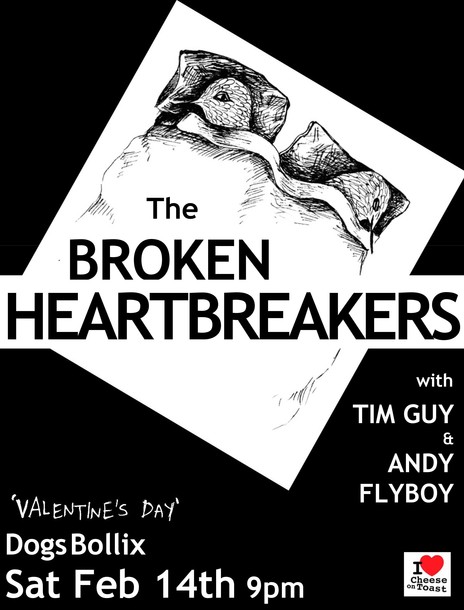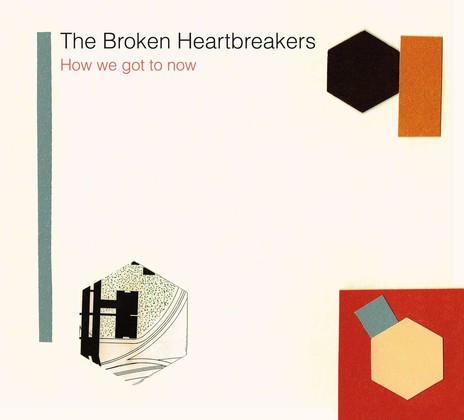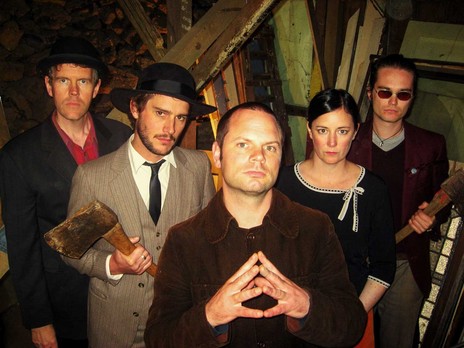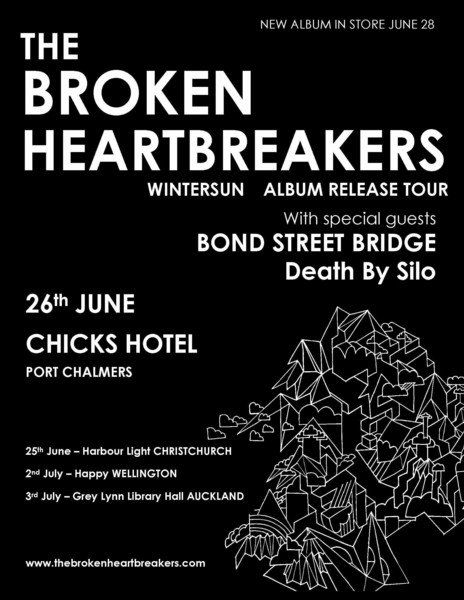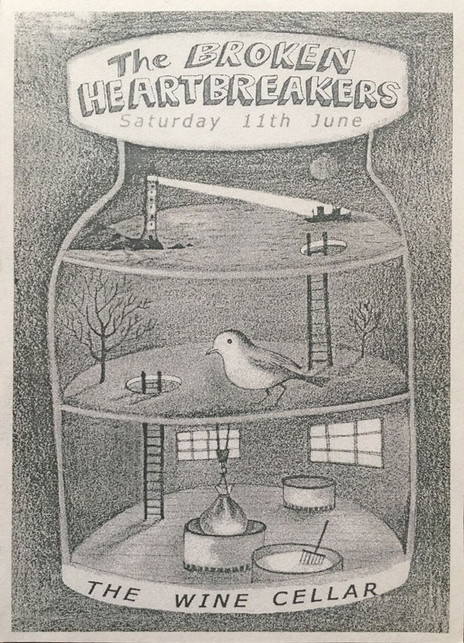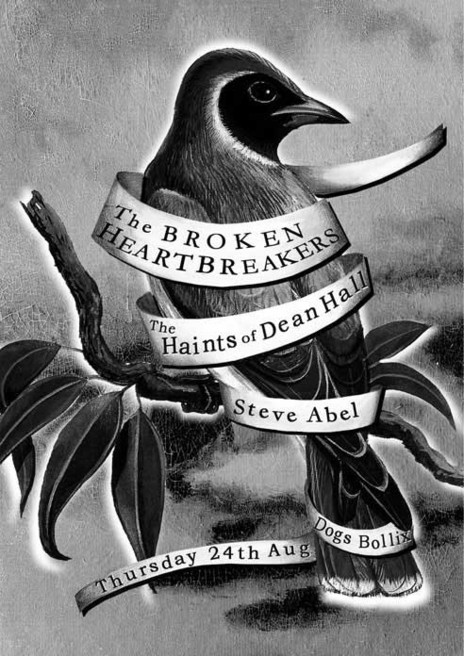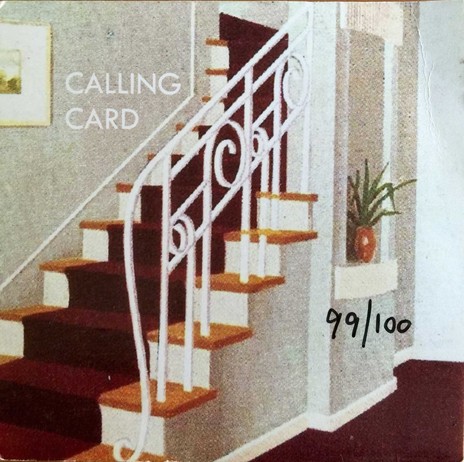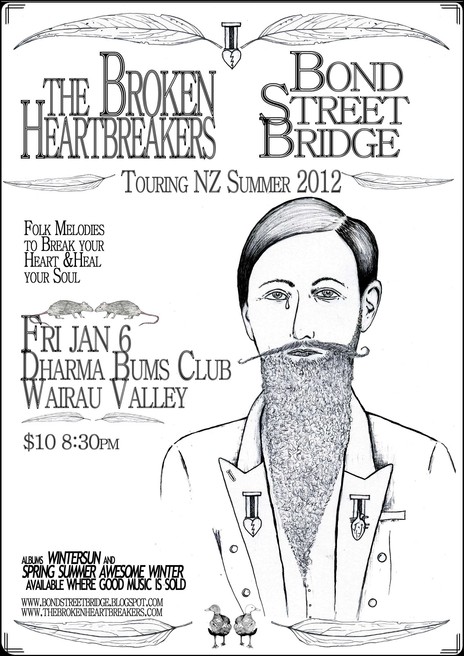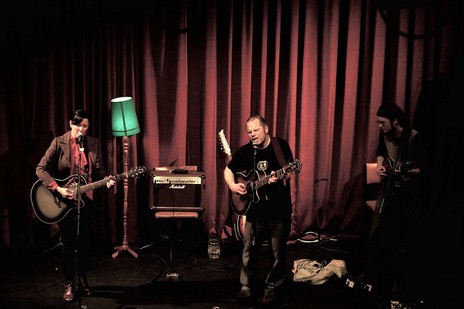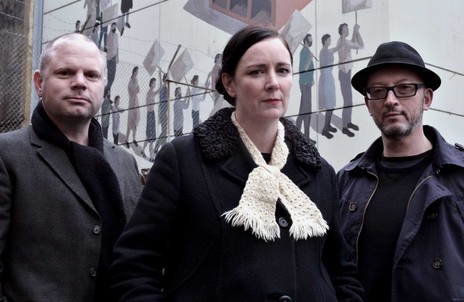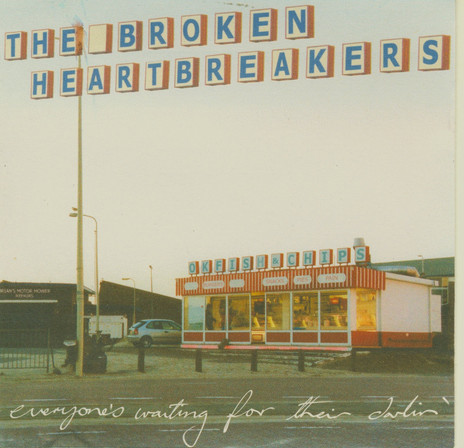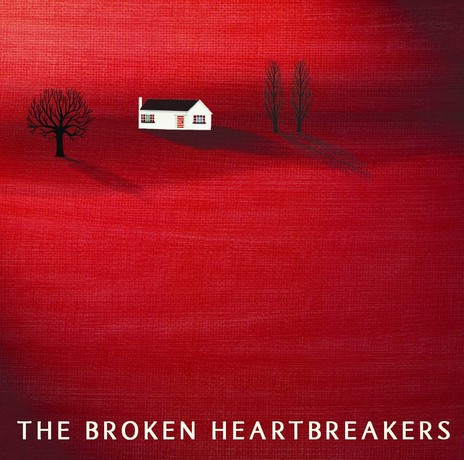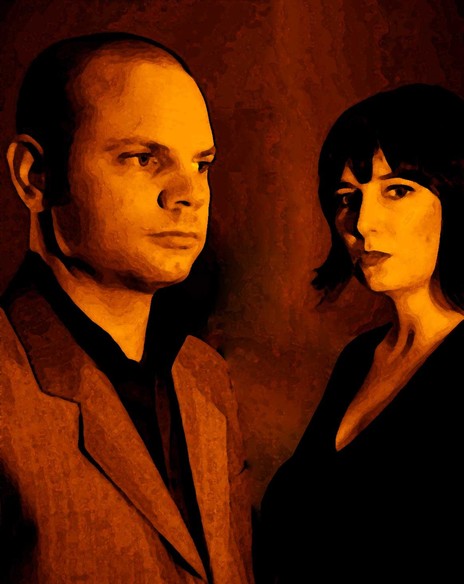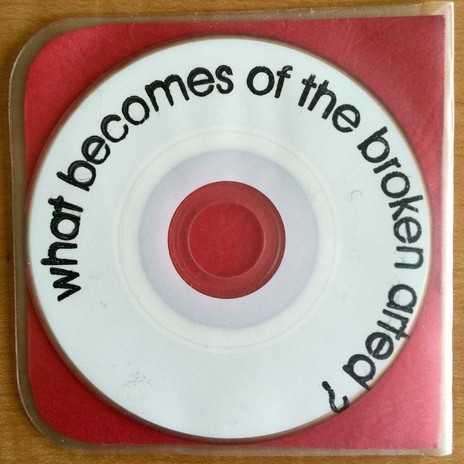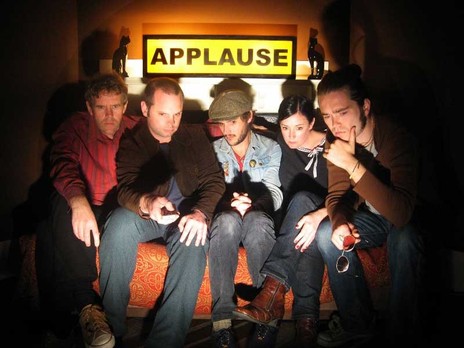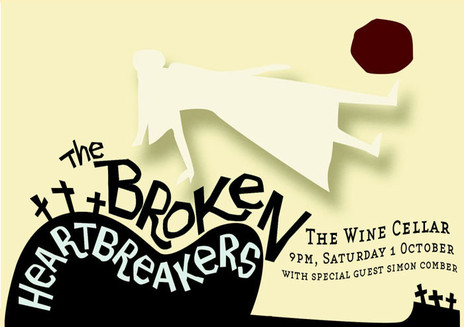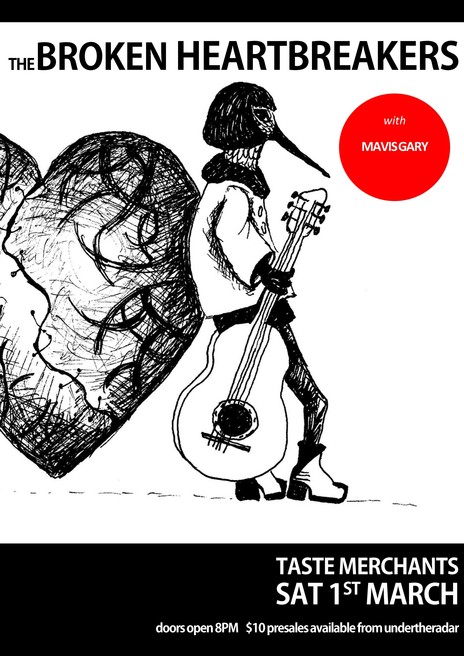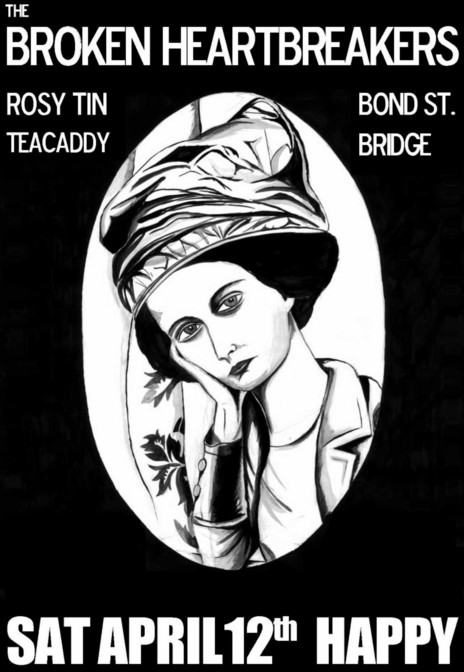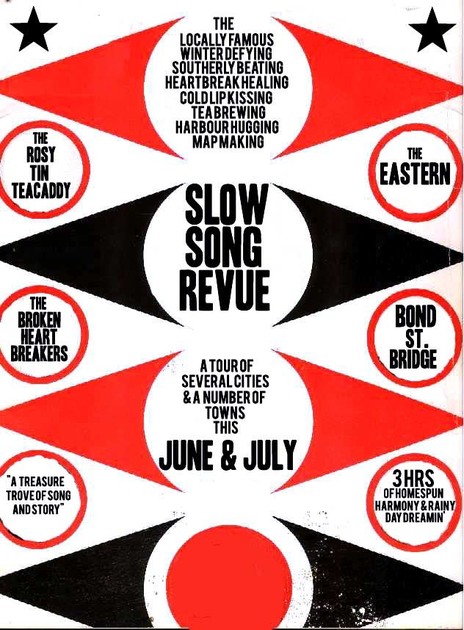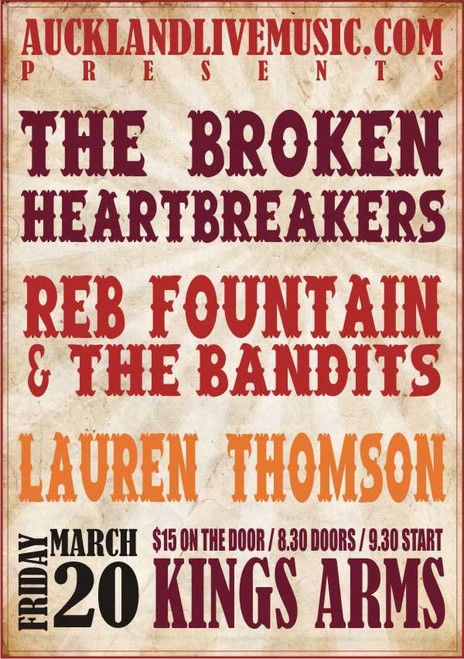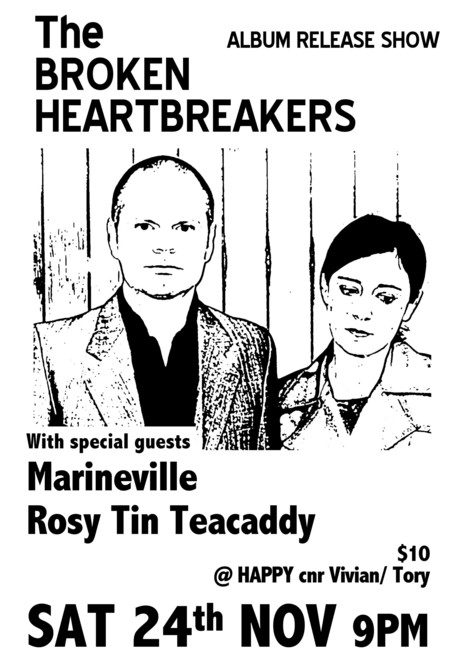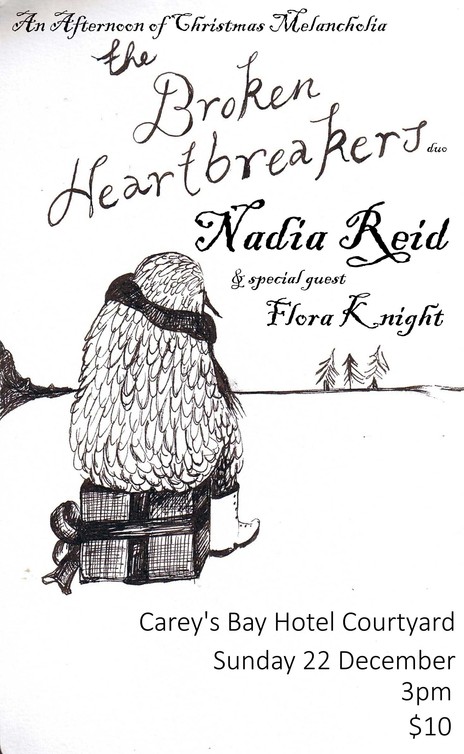The Broken Heartbreakers have been active as a musical unit since 2002, with many relocations and line-up changes incrementally evolving their sound over that time.
Rachel Bailey says of their origins, “We met through John’s group at the time, the instrumental band Salon Kingsadore, through a mutual friend. I was doing some guest vocals on a recording.”
“The moment I heard Rachel’s voice I was just blown away,” says Howell. “I had never heard a voice that had that kind of tone and emotional depth and honesty before. Months later, I managed to twist Rachel’s arm to come and sing some harmony on some new country songs I’d been writing that didn't fit into the Salon Kingsadore vibe. But Rachel insisted on hearing some demos before even committing to meet with us. Pretty staunch, I thought! I was relieved and nervous when she finally agreed to come to a rehearsal.”
Howell had already started initial practices with Salon Kingsadore drummer Matt Sandford and Ben Furniss (of Surrealistic) on bass. He had met both Ben and Matt through the musical network that had built up around Earwig Studios in Birkenhead, operated by Darren McShane, with its analogue recording aesthetic.
“Funnily enough, although it was a reasonably big leap,” says Howell, “it wasn't a hard sell to convince these rock’n’roll guys to start an acoustic country band. At the start of the millennium it really felt like the art of old school ‘songwriting’ – constructing songs with vocal melody and harmony, and telling stories with stripped back acoustic honesty – was out of vogue with both the popular and alternative culture of the time.
“I remember that this was the era of most bands playing with loud, distorted guitars and ooonst ooonst dance music being absolutely dominant in the mainstream. Believe it or not it seemed rather radical in those days to see a band sitting on stage with acoustic guitars, singing heartfelt songs in harmony. It felt like no one at the time was doing it. Hard to believe in today’s climate of alt country balladeers!”
The years leading up to founding the BHBs were a long musical journey for Howell, who had played with a number of groups since his teenage years.
The years leading up to founding the BHBs were a long musical journey for Howell, who had played with a number of groups since his teenage years.
The back story to the BHBs reflects in particular Howell’s wide ranging and restless interests in music, stretching back to a youthful appreciation of mod icon Paul Weller and the post-punk wave of UK groups of the late 1970s and early 1980s.
His first Dunedin high school band Tin Soldiers (namechecking the Small Faces song) was obviously influenced by the “Modfather”, as well as a collection of well-worn LPs by The Style Council and The Jam.
The group made the Rockquest Finals and released an album, Hell of a Time, on Pagan Records, touring to support it, but the project suffered from the lag between their initial popularity and the time it took to get the product out.
Evolving through a series of new projects, including the short-lived mod beat group and cultural phenomenon of Too Many Daves in 1994 and 1995, Howell relocated to Auckland in the late 1990s where I joined him in Alpha Plan.
This group released two albums and an EP, but following a two-year venture to the United Kingdom, the wear and tear of this itinerant existence meant the group faded into the distance.
Despite the psychic drain of battling it out in London, Howell returned to Auckland and quickly picked up the thread, forming Salon Kingsadore, who played atmospheric instrumental guitar music. He played a central role in writing and producing their self-titled debut album before departing the group.
By this time, Howell had also started playing with The Broken Heartbreakers, and this side project took centre stage as his most successful and long-lived musical vehicle.
Their first EP Everyone’s Waitin’ For Their Darlin’ was firmly in the country camp, although less in the gritty alt-country revival mould, leaning instead towards the “cosmic American music” that Gram Parsons used to talk about. Tales of love, loss, and lonely small town migrants to the big smoke, all burnished with signature steel guitar of guest musician John Segovia.
Howell says his turn at the time towards country sounds was a response and reaction to having spent the 1990s playing in “noisy guitar bands”.
“I discovered Gram Parsons through a tribute compilation CD from the Auckland Public Library. Country was a form of music I had studiously avoided up to that point. I call it the Gram Parsons window because I’m sure I’m not the only musician to have come up through a so called alternative scene, who had their mind opened to the possibilities of country music by this artist.”
Even so, tracks such as ‘Baby Blue’ gave an indication the group were more than one trick pining provincials. With its downcast harmonies and a refrain borrowed from fellow Dunedin musician Andrew Spittle, this song alone showed the BHBs were already chafing at the boundaries of their self-imposed genre.
The BHBs maintained a busy live schedule, including a winter residency at Aqua Velvet in Raglan over 2003 comprising four shows, one a month over that winter. The event was billed as Two Kinds of Music and featured both his bands at the time, Salon Kingsadore and The Broken Heartbreakers.
Around that time and into 2004, the BHBs also curated a bunch of shows called When Country Came to Town. These shows featured the BHBs and other Auckland bands with a country leaning, Boxcar Guitars and The Radio Kings.
Over numerous sessions during 2005 and 2006 the band recorded their next album at Earwig Studios. “This was a one hundred percent analogue labour of love,” says Bailey.
The line-up for this album was Howell and Bailey with Sam Prebble (Bond Street Bridge) on violin and mandolin, Sonya Waters (White Swan Black Swan) on keyboards, and new recruit Ricky McShane (Chainsaw Masochist, Nudie Suits) on drums, with Ben Furniss remaining on bass.
“The band that performed on this album were all really talented and experienced musicians in their own right, with their own musical projects,” says Howell. “For various reasons, they all (except Sam) chose to leave the band before the record was released.”
“This left us with a record and no band to perform with,” says Bailey.
Into the gap stepped new members Myles Allpress (Heavy Jones Trio, Dictaphone Blues) on drums and Mike Stoodley (The Verlaines) on bass with Sam Prebble remaining on mandolin and 12-string guitar.
With a new direction and suitcase full of melancholic pop, the self-titled debut album was finally released in late 2007.
With a new direction and suitcase full of melancholic pop, the self-titled debut album was finally released in late 2007. Due to its distinctive cover art, the band refer to it as the Red Album.
It displayed their intentions with a deft step away from their rustic origins, launching into the rich harmonies and lush instrumentation of ‘Pretty Thing’ and the buzzed out pop psychedelia of ‘Angela’.
While the overall vibe still sat firmly in the middle of a Venn diagram with three circles (captioned analogue, angst and acoustic), the group had started to claim their own unmistakable niche.
Following several years of consolidation with regular shows around New Zealand and a handful of Australian shows, this new line-up produced Wintersun in 2010, a further journey into refining the unique BHB sound.
‘Tell That Boy’ opens the album with a Teutonic rhythm driving a pure pop melody, before veering off into an unexpected denunciation of corporate values and alienation. Its glinting core of political and personal anger is all the more effective for being presented in a sugar coated gift wrapping of sweetness and light. The last ghostly vestiges of their country and western genesis were exorcised in the spectral guitars and plaintive vocals of ‘Time to Go’, ‘Mi Corazon’ and ‘Sylvia’.
Both the Red Album and Wintersun received excellent reviews in the New Zealand media.
After leaving Auckland in September 2010, and following a brief stint around Europe, Bailey and Howell returned to Bailey’s home country of Ireland at the start of 2011. But it was a bittersweet experience as that nation was mired in the fallout of global recession.
The so-called “Celtic Tiger” economy had crashed following the collapse of an over inflated property market and resultant mass unemployment.
Their extended stay firmed up Howell’s previous political leanings that had been touched on in previous songs. He now described himself as a socialist. The delicate and lilting folk duo that the BHBs had evolved into at this time may have been soft on the ears but it had a new and steely resolve. Lyrics tackled issues head on.
“Something snapped inside me while we were living in Ireland with no money under the so called ‘politics of austerity’. I don't feel like singing about how sad I am at this point in my life. I'm far too pissed off with things to sing about my personal problems.”
After their Irish experience, the pair relocated to Melbourne for a couple of years, where they continued to operate as a duo. In 2013, they finally returned to Howell’s hometown, Dunedin. While busy with family life, and his new day job as a union organiser, the BHBs soon regrouped as a trio with Jeff Harford, formerly of Bored Games, The Rip and My Deviant Daughter, on drums.
A serious blow to the band was the death of their close friend, and longstanding collaborator, Sam Prebble, in 2014. Howell says Prebble had played an increasingly important role in the BHBs over his many years of involvement.
“He first guested during the recording of the Red Album in 2005 on violin for just a couple of songs, then he joined the band after finding a musical gap in the market and moved on to mandolin and 12-string guitar. He was pretty damned good at making himself indispensable! The leap in his involvement from the Red Album to the Wintersun album was huge. He was such an integral part of the band and a close friend over the years he was with us. His contribution and influence on the band cannot be overstated.”
In early 2015 the BHBs started work on the recording of a new album, How We Got To Now, at home studios around Dunedin, with former bassist Mike Stoodley engineering and working with Howell and Bailey as co-producer from his Auckland base. One of NZ’s most renowned bassists, Richie Pickard (who also happens to be Howell’s cousin) was brought in to play on the album, which was released in October 2015.
Performing around Dunedin, the Broken Heartbreakers had played on bills with local artist Nadia Reid as far back as 2013. Reid grew to admire the group and when she started her own record label, Slow Time Records, they became one of the first acts to sign to it. She then took them as the support act for her national opera house tour in May 2021. In October 2021, their first single on the label ‘We’re All Looking Up’ was released. After more than 20 years together, hundreds of gigs, and countless line-ups, Howell and Bailey were still putting out beautiful, world-class music.
